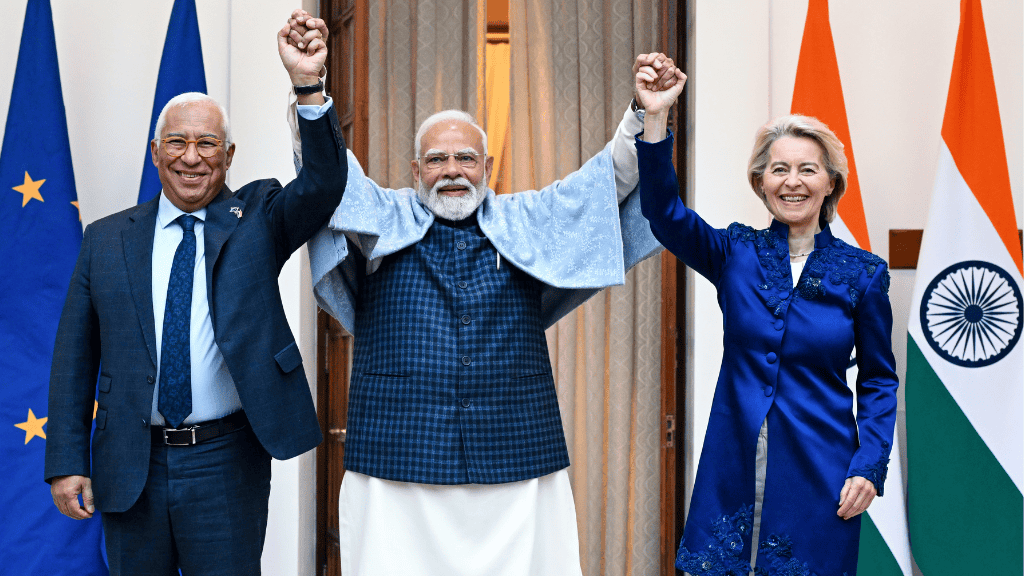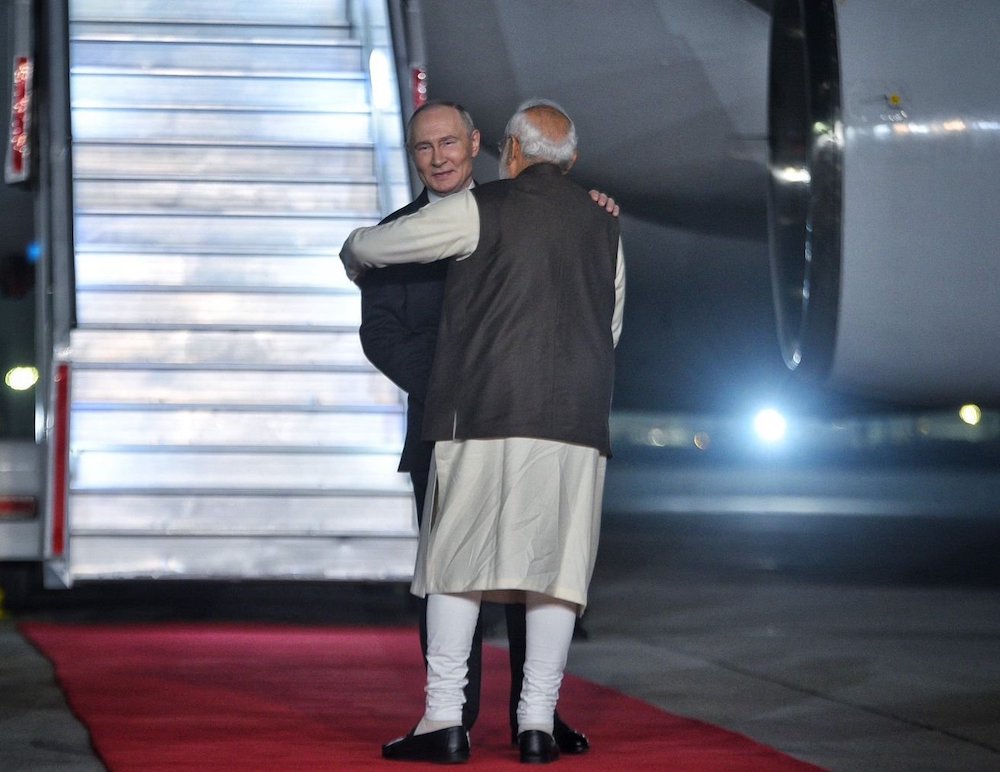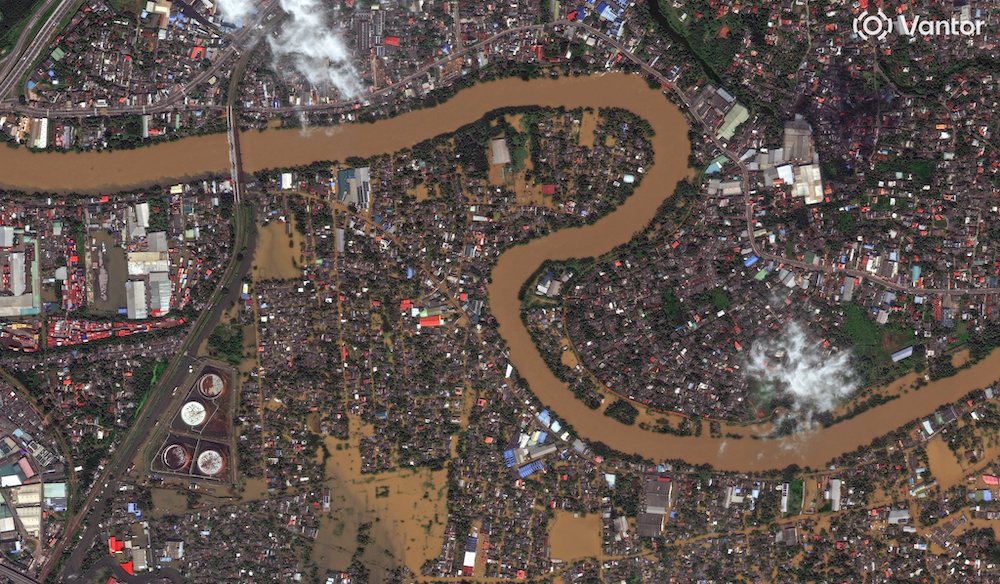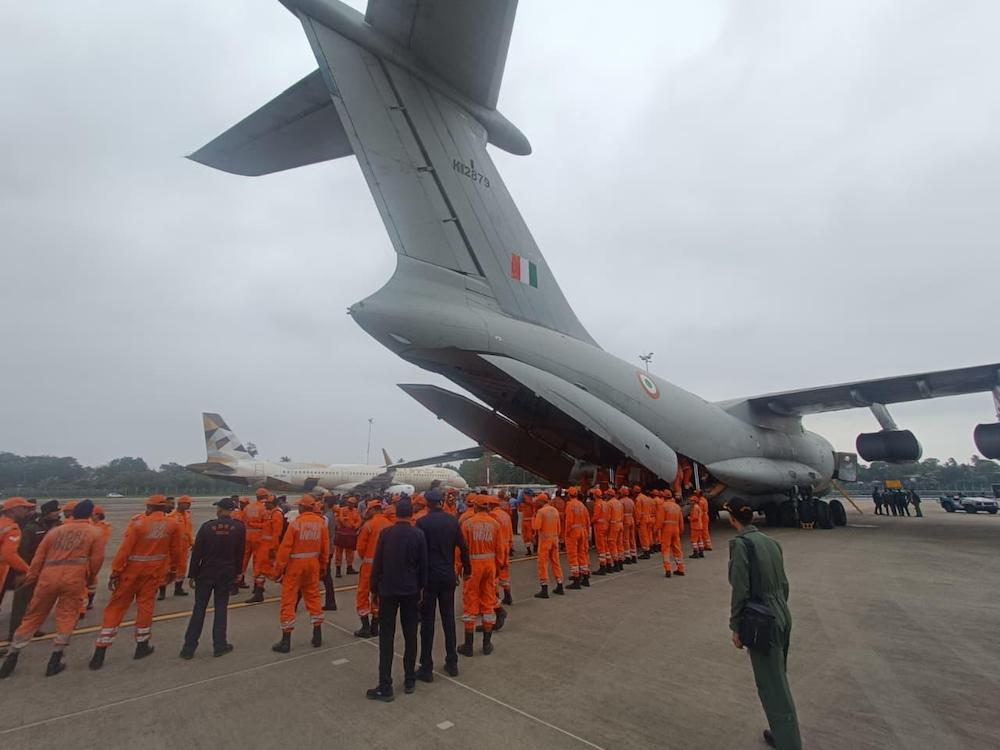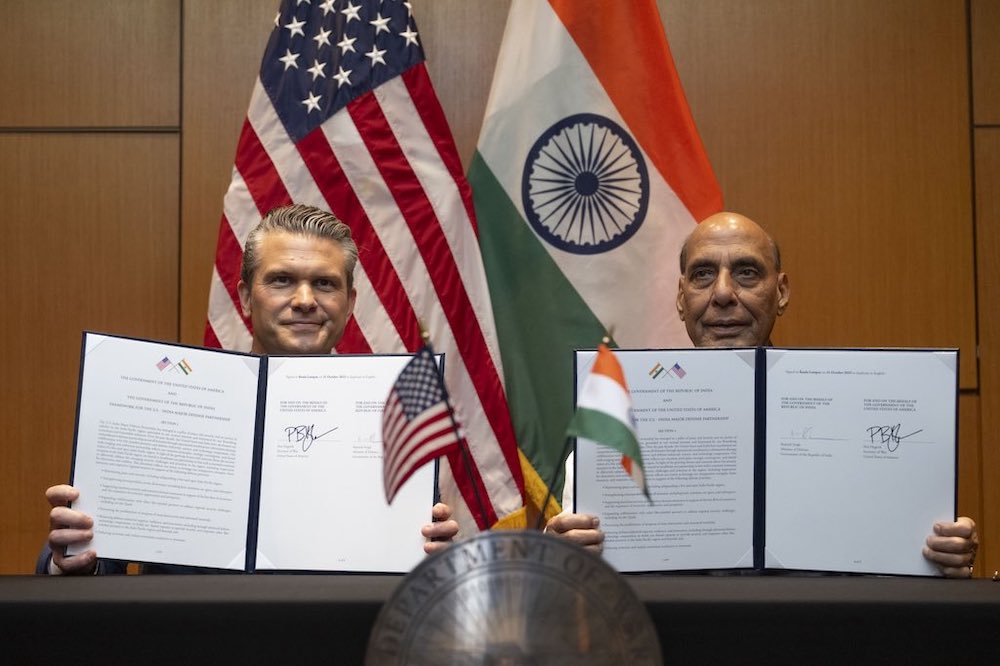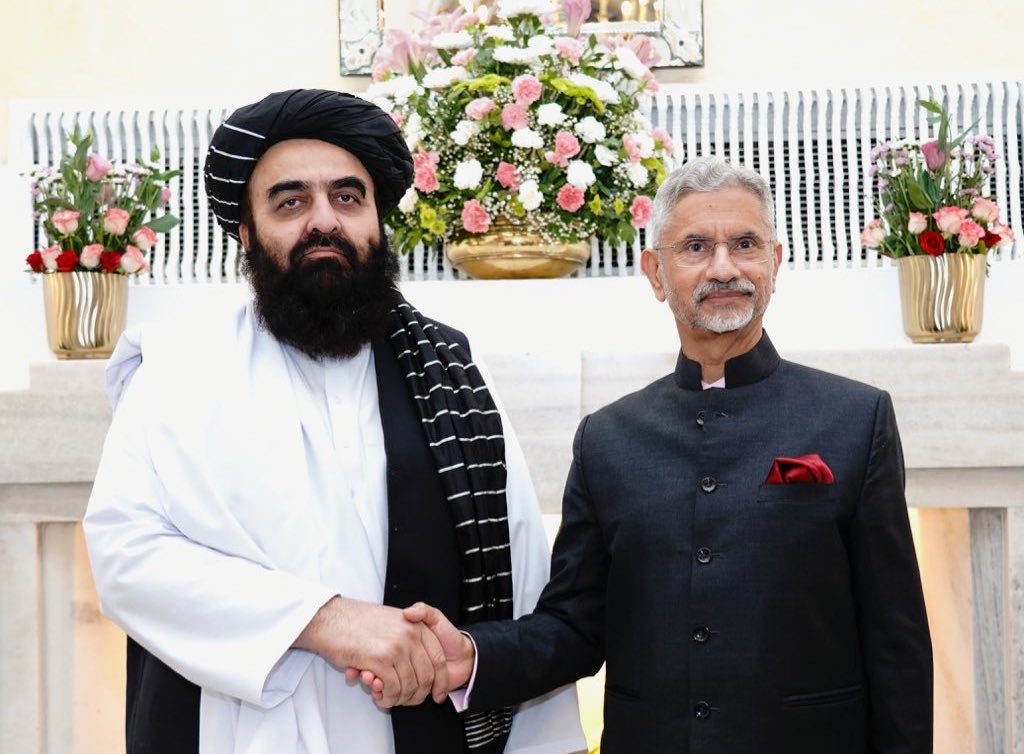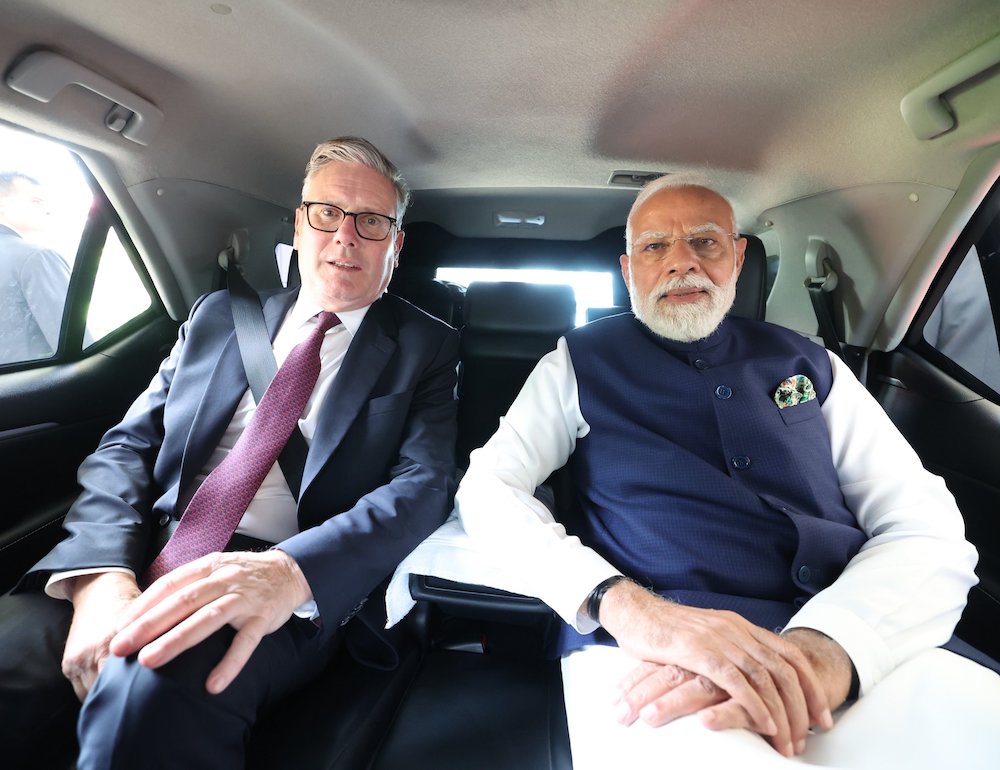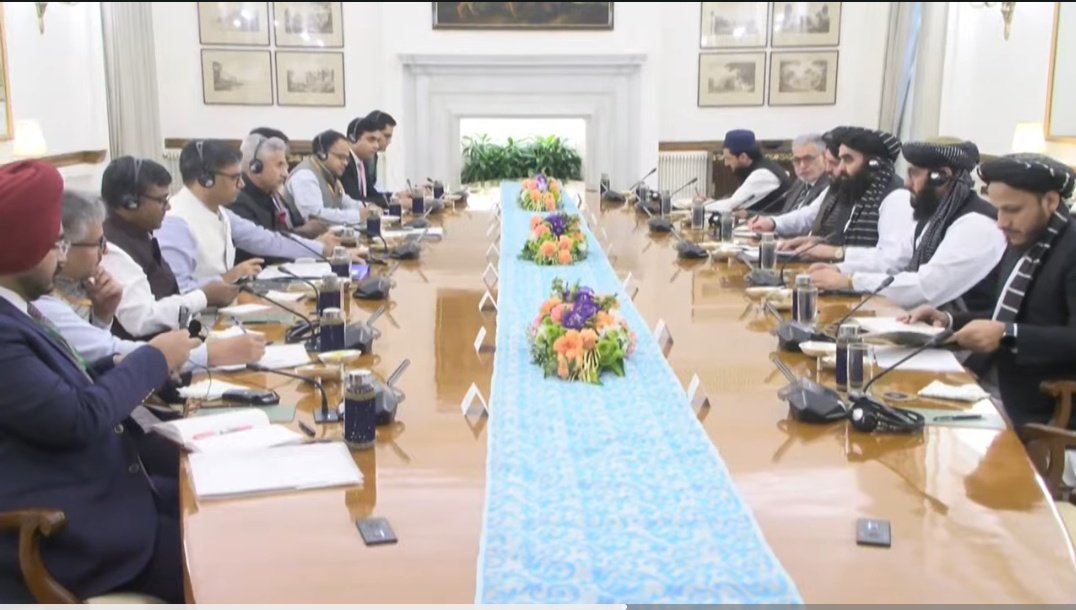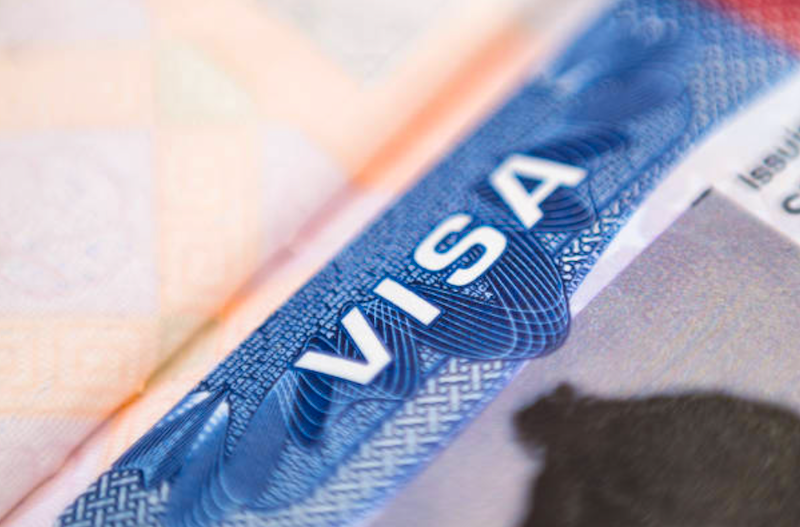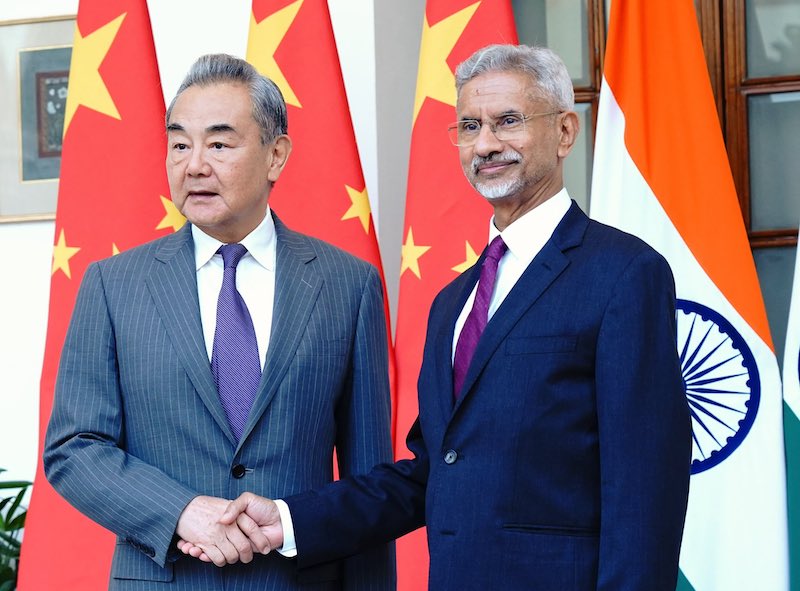 Wang Yi (L) with S Jaishankar. (Photo: X/@DrSJaishankar)
Wang Yi (L) with S Jaishankar. (Photo: X/@DrSJaishankar)
New Delhi: China’s foreign minister, Wang Yi, arrived in New Delhi on Monday, for a crucial two-day visit aimed at stabilizing relations between the world’s two most populous nations after years of border tensions.
Wang landed at Indira Gandhi International Airport at 4.15pm, where he was received by Gourangalal Das, joint secretary of the East Asia division in the Ministry of External Affairs. The visit marks the highest-level Chinese diplomatic engagement with India in over three years.
Wang is scheduled to hold pivotal talks on Tuesday, beginning with the 24th round of special representatives’ discussions with the national security advisor, Ajit Doval, at 11am at Hyderabad House. The boundary talks will focus specifically on the longstanding territorial dispute along the line of actual control.
The external affairs minister, S Jaishankar, held separate discussions with Wang on Monday evening, focusing on economic and trade issues, pilgrimages, people-to-people contacts, river data sharing, border trade, connectivity and bilateral exchanges. Also exchanged views on global and regional issues.
Welcomed Politburo member and Foreign Minister Wang Yi in Delhi this evening.
— Dr. S. Jaishankar (@DrSJaishankar) August 18, 2025
Highlighted that our relations are best guided by the three mutuals - mutual respect, mutual sensitivity and mutual interest. As we seek to move ahead from a difficult period in our ties, it needs a… pic.twitter.com/xRMYm4Nqpv
Later, on Tuesday evening at 5.30pm, Wang will call on the prime minister, Narendra Modi, at his official residence, 7 Lok Kalyan Marg. The meeting represents the first face-to-face engagement between Modi and a senior Chinese official since the border crisis began in 2020. Modi and the Chinese president, Xi Jinping, had a brief meeting at Russia’s Kazan during the BRICS summit, in October 2024.
Wang’s visit is also seen as Beijing’s attempt to build enough trust with New Delhi to enable Modi to visit Tianjin for the Shanghai Cooperation Organization summit, which will be held on August 31 and September 1. If Modi decides to visit China, it will be his first visit to the country since the 2018 Wuhan meeting with Xi.
The Chinese foreign minister’s visit comes as both countries seek to rebuild ties following the deadly Galwan valley clash in June 2020, which killed 20 Indian soldiers and an undisclosed number of Chinese troops. The incident marked the most serious military confrontation between the nuclear-armed neighbours in over four decades.
Significant progress was made in October 2024 when both sides reached a disengagement agreement for the final two friction points at Demchok and Depsang in eastern Ladakh, formally ending a four-year military standoff. However, both countries continue to maintain approximately 50,000–60,000 troops each along the disputed border in Ladakh.
Wang arrival occurs against the backdrop of changing global dynamics, with both countries facing pressure from US trade policies and seeking to reduce economic dependencies. China remains India’s largest trading partner, with bilateral trade exceeding $125 billion in 2023-24, despite political tensions.
The discussions are expected to cover resuming direct flights between the two countries, expanding tourist visa arrangements, and continuing the Kailash Mansarovar Yatra pilgrimage that resumed earlier in 2025 after being suspended during the Covid-19 pandemic.
Indian officials are likely to raise three key areas during the talks: maintaining peace in border regions, ensuring a “multipolar Asia”, and addressing terrorism concerns – particularly regarding China’s relationship with Pakistan and cross-border terrorist activities.
Cautious expectations
Analysts suggest the visit represents a careful attempt at diplomatic engagement rather than an expectation of breakthrough agreements. The boundary dispute, which has dominated China-India relations since their 1962 war, involves competing claims over approximately 128,000 square kilometres of territory.
China claims around 90,000 square kilometres of Indian territory in Arunachal Pradesh, while India asserts that China illegally occupies 38,000 square kilometres in Ladakh.
The success of Wang Yi’s India visit will likely be measured by both sides’ ability to establish mechanisms for preventing future border incidents while exploring areas of economic cooperation, including renewable energy, digital connectivity, and infrastructure development.
The timing appears strategic, occurring as India’s growing ties with the United States through initiatives like the Quad partnership have created friction with Beijing. China seeks to prevent India from aligning too closely with US-led coalitions in the Indo-Pacific region.
Wang’s departure is scheduled for August 19 evening, with both sides expected to issue statements outlining the outcomes of the discussions and potential next steps in the relationship.

